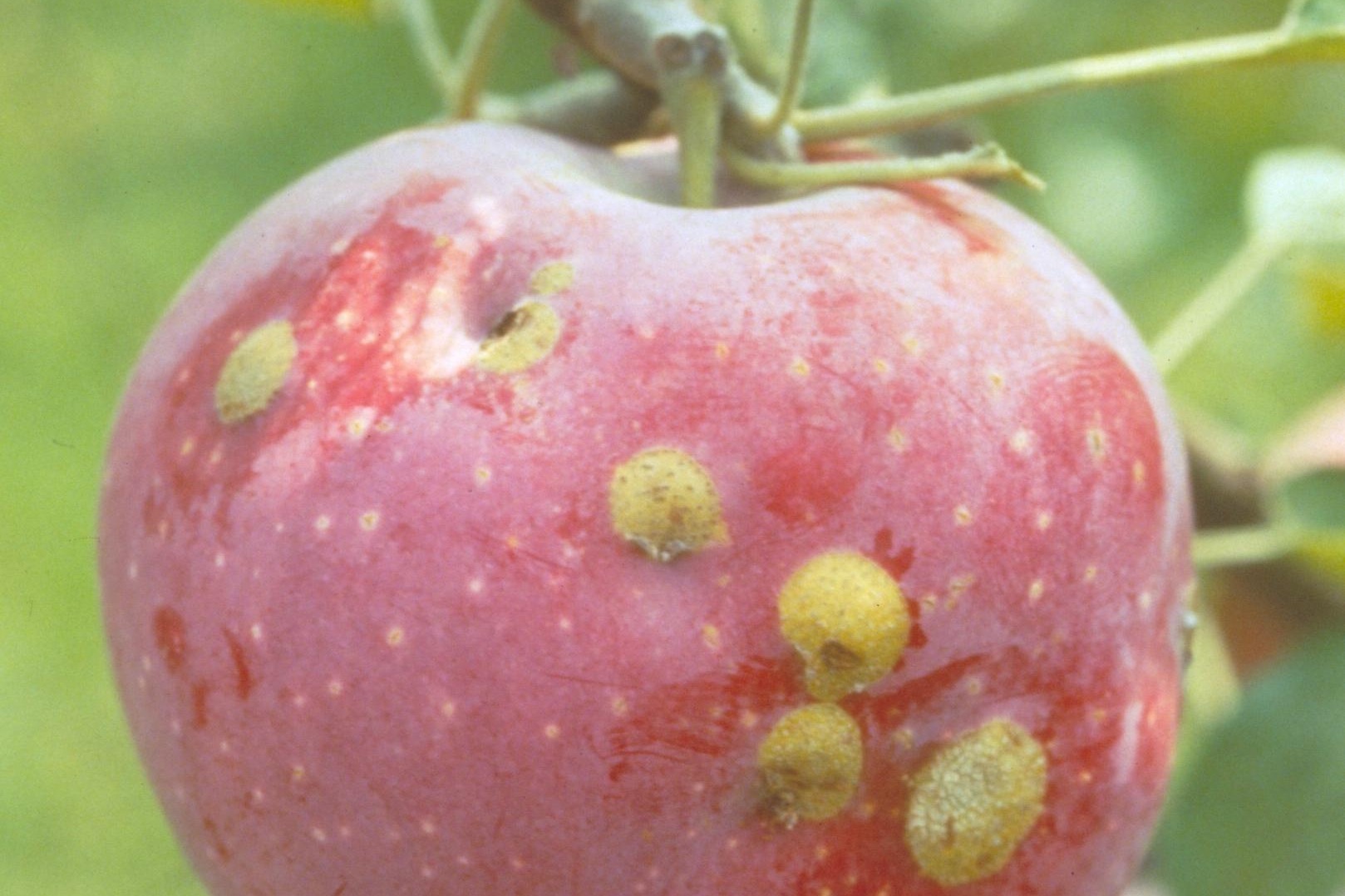Our Ugly Apples
This year’s apple crop is a little different from the waxed, glistening apples you may see in the store. The conventional approach to producing these pristine, market-grade apples relies on a heavy regimen of fungicides and insecticides. We follow a minimal-input farming philosophy that leaves our crops more exposed to the elements. We celebrate the good years when our trees produce beautiful, blemish-free apples. This year, we have an opportunity to celebrate the ugly apples too.
As you walk our through our apple orchard this year, you’ll notice smaller, spotted apples. Despite their freckles and scars, our apples are as crisp and delicious as any farm-fresh apple.
Fly Speck is a fungal disease that covers the apple peel with clusters of dark freckles. The freckled peel has no impact on the taste or texture of the apple. It can be eaten as normal, directly from the tree!
Sooty Blotch is a fungal disease that looks like a pale green to black birthmark. These apples are as crisp an delicious as any fresh apple and may be eaten straight from the tree.
Ugly produce is a large source of food waste.
About a third of the food that’s wasted along the food supply chain is simply left in the field [1], often because farms are unable to sell the produce that doesn’t meet market requirements. Roughly 1 in 8 American households are food-insecure [2] and with the global population expected to reach 10 billion people by 2050 [3], it’s increasingly important that we figure out how to get more of the food that we produce into hungry stomachs.
Industrial agriculture causes far too much environmental damage to be a viable approach to feeding future generations, but if more farms move to minimal-input or organic agriculture, we may end up with more and more ugly produce left in the field. Some aptly-named companies, such as Imperfect Produce and Full Harvest, are helping in the rebrand of ugly fruit and vegetables, but there is still a lot of work to be done to help farms sell their imperfect produce.
By visiting our farm and picking our apple crop this year, you're taking a small step towards reducing food waste — and we appreciate your support!
Apple Scab is another fungal disease that is noticeable first in the leaves and later on the apples. Minor scab has no effect on the interior of the apple and can be eaten as normal. If you’d prefer, you can also peel or cut the scab away.
Plum Curculio is a small beetle that feeds on unripe apples early in the season. The blemish seen is a scar leftover from this early damage. These scarred apples may be eaten right off the tree, or you may cut away the scar.
Photo: Ricardo Bessin, University of Kentucky
With your help, we won’t let any good apples go to waste.
Our goal is to harvest our entire crop and eliminate waste in the field. We’re organizing several events and programs to help harvest our entire crop. Here’s how you can contribute:
Pick Your Own
We will still be open for apple picking this year! Spend a crisp Autumn afternoon in our apple orchard with your friends and family. We’re offering a $5 discount when you pick a half-bushel of apples this year. Apples are $1.60/lb or $20 for a half-bushel (discounted from $25).
Volunteer Apple Picking Nights (+ Make Your Own Apple Cider)
We’re excited to partner with The Food Bank of the Hudson Valley to help feed families in need throughout the Hudson Valley. Every Thursday this season, we will host volunteer events to pick apples to be donated. After you pick, stop by the farm market to use our antique cider press to make your own apple cider!
To join one of our volunteer nights, please RSVP here.
Join the Conversation: The “Ugly” Produce Problem
We’re hosting a conversation about the the massive food waste problem and how we, as farmers and consumers, can help address this problem. Visit the farm on Friday, September 27th at 5:30pm to join the conversation. RSVP here.
Other Suggestions?
If you have other ideas to help us make the most of this apple crop, we’d love your input!


